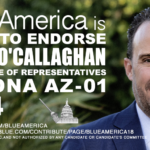As it appears more likely that Texas Governor Rick Perry is going to throw his hat into the ring of potential GOP presidential contenders, Rachel Maddow reminded us that all of the praise over how wonderful the economy is in Texas is nothing but pure baloney.
Here's more from some of the articles Maddow quoted in this segment.
Perry sounds like a White House candidate as he fires up New York GOP
But the economic picture in Texas isn't as rosy as Perry portrayed.
For one, state lawmakers have spent much of the year grappling with a budget shortfall that left them $27 billion short of the money needed to continue current state services.
In addition, while the national unemployment rate is 9.1 percent and the Texas unemployment rate is 8 percent, some 23 states, including New York, have lower unemployment rates, according to the U.S. Bureau of Labor Statistics.
Perry often talks about the robust growth of jobs during his tenure. But jobs grew at about the same rate during Democrat Ann Richards' four years as governor. And they grew at a much faster rate during Republican George W. Bush's six years in the office than they have in Perry's 10. Even before the national recession hit in 2008, jobs grew at a slower rate in Texas under Perry than under Bush.
Rick Perry’s Jobs Problem, Part II:
The Wall Street Journal’s lead editorial last Friday touted “The Lone Star Jobs Surge” and reported, based on Bureau of Labor Statistics numbers via the Dallas Federal Reserve, that “37% of all net new American jobs since the recovery began were created in Texas.” Texas has created 265,000 “net new jobs” since the recession ended in June 2009 through April 2011, the Journal reported.
Texas’ unemployment rate tells a different story. It has gone up from 7.7% to 8.0% over that same period. And by that measure, Texas has done worse than the rest of the country since the peak of national unemployment in October 2009: that month the U.S. rate was 10.1% and Texas was 8.2%. Texas peaked at 8.3% last December, dropping to 8.0% in April, while the national rate has dropped a point since it’s peak to 9.1%
WSJ lauds Texas economy, marked by jobs (including a lot of low-paying ones):
From 2007-2010, number of Texans earning minimum wage or less rose 150 percent, or 330,000 jobs
During the recession, average weekly wages stayed fairly stable in New York, California and the U.S. as a whole, while Texas’ dropped to $750 per week, a drop of about 5.5 percent. Since the end of the recession, wages have generally risen in all of those regions. From December 2007 to April 2011, weekly wages in Texas increased 0.6 percent, compared to 2.5 percent in New York, 9.3 percent in California and 5.0 percent in the U.S.
As of April 2011, the average weekly wage was $790 in Texas ($41,000), $900 in New York ($47,000), $930 in California ($48,000) and $790 in the U.S. ($41,000).
Additionally, Texas has by far the largest number of employees working at or below the federal minimum wage ($7.25 per hour in 2010) compared to any state, according to a BLS report.
In 2010, about 550,000 Texans were working at or below minimum wage, or about 9.5 percent of all workers paid by the hour in the state. Texas tied with Mississippi for the greatest percentage of minimum wage workers, while California had among the fewest (less than 2 percent).
Yesterday, Texas lawmakers in the state house passed a 142-page measure in special session that could drastically change how 6.6 million Texans benefiting from Medicare, Medicaid, and SCHIP programs receive their care. The bill — which includes two controversial amendments that have yet to be adopted by the state Senate — strongly mirror the reforms offered in Rep. Paul Ryan’s (R-WI) budget, but would have to be approved by the federal government [...]
Last year, Gov. Rick Perry (R-TX) suggested that Texas may opt out of the Medicaid program entirely, but walked back the idea after a state report concluded that 2.6 million Texans would be left uninsured. Texas currently has the highest uninsurance rate in the nation.
And from the Center on Budget and Policy Priorities, Texas has a fiscal year 2012 projected budget shortfall of $9 billion which is the fourth worst budget deficit in the country.
And on the same day that Perry posted this -- Help Us Turn the Tide in Washington and Stop These Irresponsible Bailouts, Perry also announced that he would accept the stimulus aid.
More Postcards From The Texas Miracle:
Look who loves a good federal bailout:
Texas Gov. Rick Perry likes to tell Washington to stop meddling in state affairs. He vocally opposed the Obama administration’s 2009 stimulus program to spur the economy and assist cash-strapped states. Perry also likes to trumpet that his state balanced its budget in 2009, while keeping billions in its rainy day fund. But he couldn’t have done that without a lot of help from … guess where? Washington. Turns out Texas was the state that depended the most on those very stimulus funds to plug nearly 97% of its shortfall for fiscal 2010, according to the National Conference of State Legislatures.


















